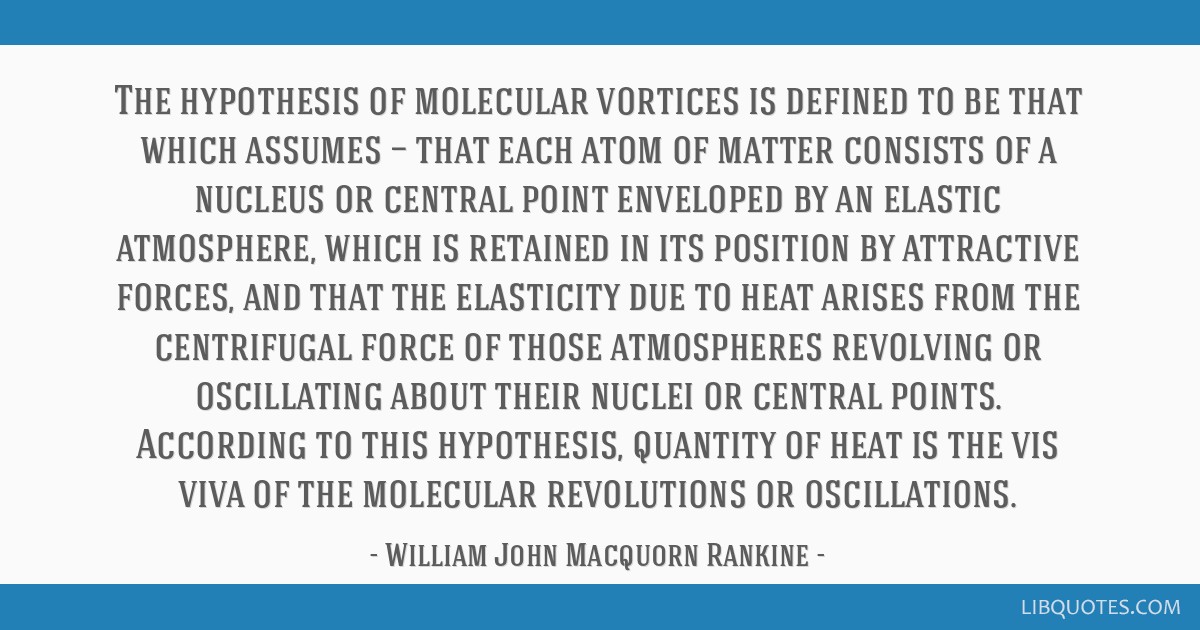The hypothesis of molecular vortices is defined to be that which assumes — that each atom of matter consists of a nucleus or central point enveloped by an elastic atmosphere, which is retained in its position by attractive forces, and that the elasticity due to heat arises from the centrifugal force of those atmospheres revolving or oscillating about their nuclei or central points.
According to this hypothesis, quantity of heat is the vis viva of the molecular revolutions or oscillations.
"On the Centrifugal Theory of Elasticity as applied to Gases and Vapours" in The London, Edinburgh and Dublin Philosophical Magazine and Journal of Science (July-December 1851), p. 510.























